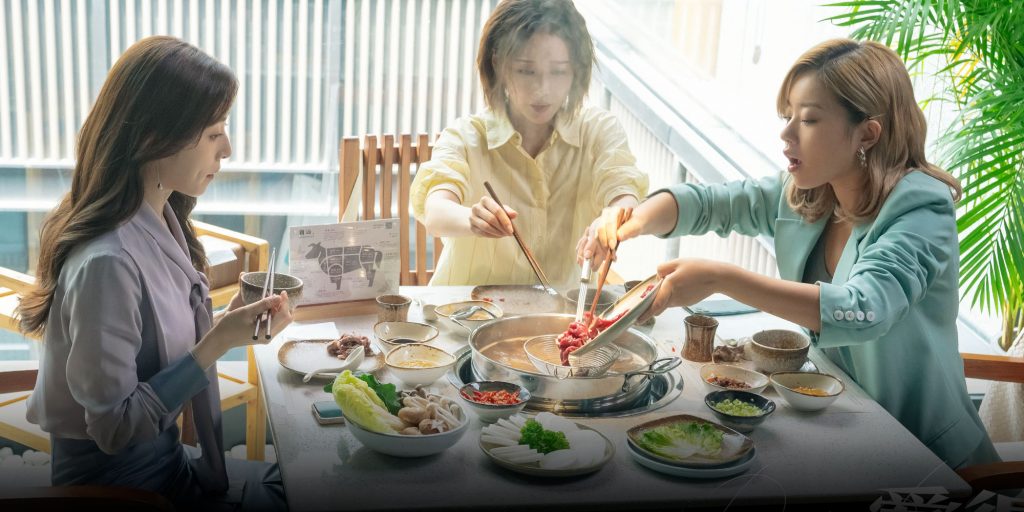“Delicious Romance” carries on the tradition of female ensemble-led dramas like “Ode to Joy,” but with a twist.

From classics like “Ode to Joy” and “Twenty Your Life On” to last year’s “Nothing but Thirty,” female ensemble-led dramedies have been a consistent bright spot for China’s television and streaming industries in recent years. Despite the trend, almost nobody saw “Delicious Romance” coming.
The series, which debuted on Chinese streaming platforms last November, took the entertainment world by storm, becoming one of most successful dramas released in the past year. It’s not as though it came out of nowhere. “Delicious Romance” was helmed by Chen Zhengdao, director of acclaimed teen films such as “Eternal Summer” and “Upcoming Summer.” Still, after a desultory pre-release advertising campaign, few thought the show would leave a lasting impression. Instead, it benefitted from a groundswell of word-of-mouth support; on the notoriously picky popular rating site Douban, its average score reached as high as 8.4 out of 10 before eventually settling at a still impressive 8.1.
But “Delicious” isn’t merely a re-run of the girl boss feminism that made “Ode to Joy” a hit six years ago. One reason it has resonated with drama fans is the way it subverts the tropes of past female ensemble-led soaps. In the process, it injects a bit of much-needed nuance into the growing body of feminist Chinese TV and film.
Prior to “Delicious,” a number of hit shows had won over female viewers with stories of workplace empowerment and strong women overcoming every challenge put in front of them. These shows, including the above-mentioned “Ode to Joy” and “Nothing but Thirty,” challenged stereotypes and inspired many viewers, but their particular brand of feminism also left many feeling excluded.
Part of the problem was that their female protagonists seemed closer to superheroes than ordinary women. In recent years, da nüzhu — or “strong female leads” have proved popular with domestic viewers. These protagonists are idealized to the point of becoming two-dimensional — their perfection turning them into a kind of caricature of the perfect woman. They remain cool, calm, and collected under the patriarchal gaze, all while deftly balancing their obligations at home and in the workplace. Their success often depends on their ability to silently endure and overcome, rather than confront or overturn. Continue to read the full article here
– This article originally appeared on Sixth Tone.





